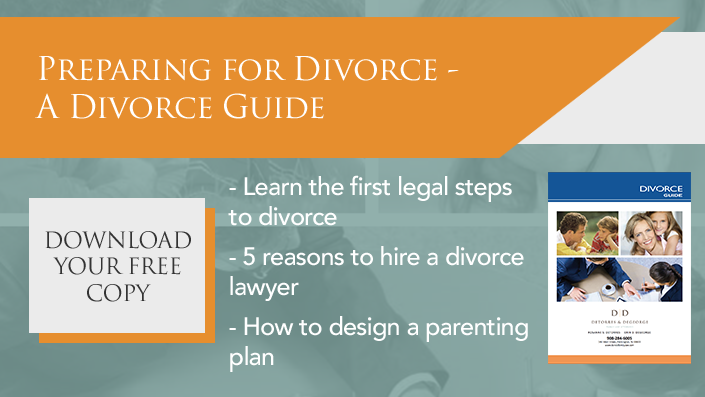 Divorce is a life-changing event, ranking high in the amount of emotional and financial stress imposed on you and your family. As you navigate this challenging process, relying on the advice of experienced legal and financial experts can alleviate some of your stress, giving you a better picture of your future financial stability. When sorting out the details of a final divorce judgment, the court will consider financial assets and liabilities that have or will continue to accumulate before, during, and after your marriage. This takes into account more than just your combined earnings and debts. Did you know your pension will also be considered, even if your retirement is years or even decades away?
Divorce is a life-changing event, ranking high in the amount of emotional and financial stress imposed on you and your family. As you navigate this challenging process, relying on the advice of experienced legal and financial experts can alleviate some of your stress, giving you a better picture of your future financial stability. When sorting out the details of a final divorce judgment, the court will consider financial assets and liabilities that have or will continue to accumulate before, during, and after your marriage. This takes into account more than just your combined earnings and debts. Did you know your pension will also be considered, even if your retirement is years or even decades away?
Qualified domestic relations orders (or QDRO, often pronounced as “quadro”) are legal documents issued by the court that serve to clarify the division of marital property during a divorce. If one applies in your divorce case, you or your spouse may be forfeiting a portion of your retirement benefits, so it’s important to plan for that contingency. Exactly what is a QDRO and how can it affect you after your divorce is finalized?
What is a qualified domestic relations order?
Qualified domestic relations orders can create equity for families when financial resources will be divided by a divorce. A QDRO is a court order that allows assets to be transferred to a spouse, child, or former spouse as part of the divorce. When determining the distribution of assets and debts in divorce, a QDRO is issued by the court during the divorce proceedings to divide marital assets, such as retirement benefits, and to ensure fair distribution of property.
If either spouse has an eligible retirement plan, a qualified domestic relations order will specify a proportion of the retirement plan’s assets to be paid to the “alternate payee.” A QDRO applies to retirement plans covered by the federal Employee Retirement Income Security Act (ERISA), such as 401(k)s, 403(b)s, and other types of defined benefit or defined contribution retirement plans.
Qualified domestic relations orders must meet specific requirements outlined in ERISA pertaining to details about the parties involved, the retirement plan, and the payment amount. Your divorce lawyer and your tax professional can advise you on the short and long-term financial implications if a QDRO is part of your divorce judgment.
Tax implications when assets are divided
If you are receiving payments under a qualified domestic relations order, you must claim them as income unless you roll them over into a traditional IRA and meet certain conditions. For example, if one spouse has a 401(k) plan, the QDRO might direct that 50% of the 401(k) balance be transferred to the other spouse’s IRA, in order to defer taxation. You may be able to roll over tax-free all or part of a distribution from a qualified retirement plan that you receive under a QDRO.
Qualified domestic relations orders can be complex legal documents, potentially impacting both the short-term tax implications and long-term financial forecast for you and your family. If you believe you have been unfairly impacted, you may be wondering how to fight a QDRO. It’s important to consult with a divorce lawyer or financial advisor familiar with QDRO, New Jersey domestic relations laws, and federal ERISA guidelines, to ensure that your rights are protected. At DeTorres and DeGeorge Family Law, our divorce lawyers will prioritize your economic needs and fight for your pension rights after divorce. Our goal is to help you obtain all of the property you deserve in a fair and equitable divorce.
Frequently Asked Questions
What are the requirements for a qualified domestic relations order?
According to the Employee Benefits Security Administration of the U.S. Department of Labor, a QDRO must recognize the right of an “alternate payee” to receive all or part of a participant’s pension benefits. An alternate payee can only be a spouse, a former spouse, a child, or other dependent of the participant.
Who is responsible for filing a QDRO after divorce in New Jersey?
In a New Jersey divorce, when a spouse is entitled to receive part of all of their partner’s pension, the divorce attorney will prepare the qualified domestic relations order and present it for the judge to sign.
What happens if a QDRO is not filed?
You risk forfeiting your share of retirement funds if any of the following occur before the QDRO is filed:
- Your spouse retires
- Your spouse remarries
- Your spouse is fired by the employer providing the pension benefits, or quits the job
- Your spouse withdraws funds before retirement, or uses the account to secure a loan
- The death of your spouse
May a QDRO be part of the divorce decree or property settlement?
Yes, according to federal guidelines, it is not necessary to have a separate judgment, decree or QDRO, meaning it may be included as part of the divorce decree or court-approved property settlement, or issued as a separate order, without affecting its “qualified” status.
Can a QDRO provide for payment to the guardian of a minor child?
Yes, according to federal guidelines, if an alternate payee is a minor or is legally incompetent, the QDRO can require payment to someone with legal responsibility for the alternate payee.
Can a QDRO cover more than one plan?
You or your spouse may have paid into multiple retirement plans, provided by the same or different employers. A QDRO can assign rights to retirement benefits under more than one retirement plan as long as the assignment of benefit rights under each plan are clearly specified.
Is a deferred compensation employee benefit considered a marital asset?
In New Jersey, deferred compensation may or may not qualify as a marital asset in a divorce. The court will determine if the deferred compensation benefit affects the amount of alimony or child support the covered employee must pay to the ex-spouse and/or children.
Are there alternatives to using qualified domestic relations orders?
Can you claim a pension after divorce without a court-ordered qualified domestic relations order?
It may be possible to negotiate a deal, essentially swapping another asset that has the same value as the pension value that an ex-spouse would receive. The purpose of this type of agreement is to allow the spouse to receive their share of a pension without having to wait until the employee is vested into the retirement account.
For example, a wife who wishes to keep their house may waive her right to an equivalent value of her ex-husband’s pension. It’s essential to have the advice of an experienced divorce lawyer to look out for your best financial interests while negotiating this type of agreement as part of your divorce judgment.


 START LIVE CHAT
START LIVE CHAT









